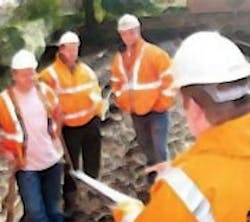Modular I/O Diversity Is Well-Suited for Young Engineers and New Installations
By John Rezabek
Earlier this year I worked on an in-house engineered addition for our chemical plant, to add a sophisticated analyzer for a process stream. The supplier wanted the instrument in a heated and air-conditioned analyzer house, and when we install a walk-in enclosure of any kind, a series of concerns require attention. At a minimum, we add monitors for oxygen deficiency, combustibles if applicable, carbon monoxide if it's in the sample stream, or any other toxic or hazardous vapors that could accumulate in the shelter. Discrete contact closures for loss of purge or HVAC could be a requirement.
In this case, I added added sensors for system pressures and temperatures, and there are some discrete, common-trouble alarms from the analyzer. All of these conditions necessitate display and alarming in a continuously attended location—the control room—and the question becomes how best to integrate all these diverse signals into the existing automation scheme.
Twenty years ago, we'd likely be routing conduit or raceways and wire from junction box to junction box, or perhaps all the way back to the control room, at potentially great expense. There was such a thing as remote I/O, but the size, cost, network requirements and environmental restrictions didn't make that very easy either.
Like everything else, the tools available have evolved over the years and become increasingly inexpensive, flexible and reliable. Today, products are at our disposal that make solving a problem like mine much less irksome.
If you attended ISA this fall, you could have found numerous solution providers offering the ultimate in flexibility: modular I/O for everything from contact inputs to pH probes, customizable and scalable in many cases on a channel-by-channel basis. IP67 products are available from a number of suppliers, meaning the I/O can be submerged in a meter of water and still function. More than a few of them interface to multiple buses including industrial Ethernet, Profinet, Profibus-DP, DeviceNet and Modbus. It seems like the era of "anynet" and "anybus" is here, and to that you can add "any I/O."
So where do you draw the line? Are you a one-person-band I/O hobbyist, happy to have your own ISA show inside the gate? Or are you the lucky one who inherited such a system from a predecessor? As machines and skids arrive, does I/O and bus ubiquity mean you have even less control over the hardware you now must integrate with the existing platform?
In my world, we have this curious problem with reliability. Simply stated, present-day hardware is extremely reliable, so it's a challenge to get enough "practice" to stay proficient. My plant's Modbus-based remote I/O is 10 years old, and I don't remember the last time something broke that couldn't be fixed by swapping cards. Heaven help us if we have to program something. I hope no one pitched or donated the laptop—probably running Windows 98—that has the programming tool, which by now is obsolete or was superseded a few years ago, but still needed for my now-obsolete bus interface modules. And I hope the friendly guy at the factory I called last time I needed him is still there, at the same number, in the same job, because I think I'm going to need him after I find that old laptop.
Now, do I want to multiply this problem by say two or three?
If you're young and exuberant, enjoy late-night phone calls and have a keen knack for remembering the correct cabling, stop bits, parity, shortcut keys, Excel file formats and passwords or can repeatedly and intuitively find the right manual and open it to the relevant chapter and verse for a given issue, then maybe you'll value diversity more than I do. If on the other hand you've grown old and grumpy, like I have, you will be on watch for such diversity and be locked and loaded to blow away any attempts to foist it on you and your plant. When you find it, you immediately begin planning and budgeting to rip it out and replace it with something more standard, so you perhaps have only one laptop to dust off and recharge the battery when you need to dive deeper into a problem.
Openness and commoditization are welcome developments in the world of remote I/O, but users might wish to weigh the costs of diversity as well, and protect your clients and successors from future vulnerabilities.
John Rezabek is a process control specialist at ISP in Lima, Ohio.
About the Author
IndustrialNetwroking.net
IndustrialNetwroking.net

Leaders relevant to this article:
